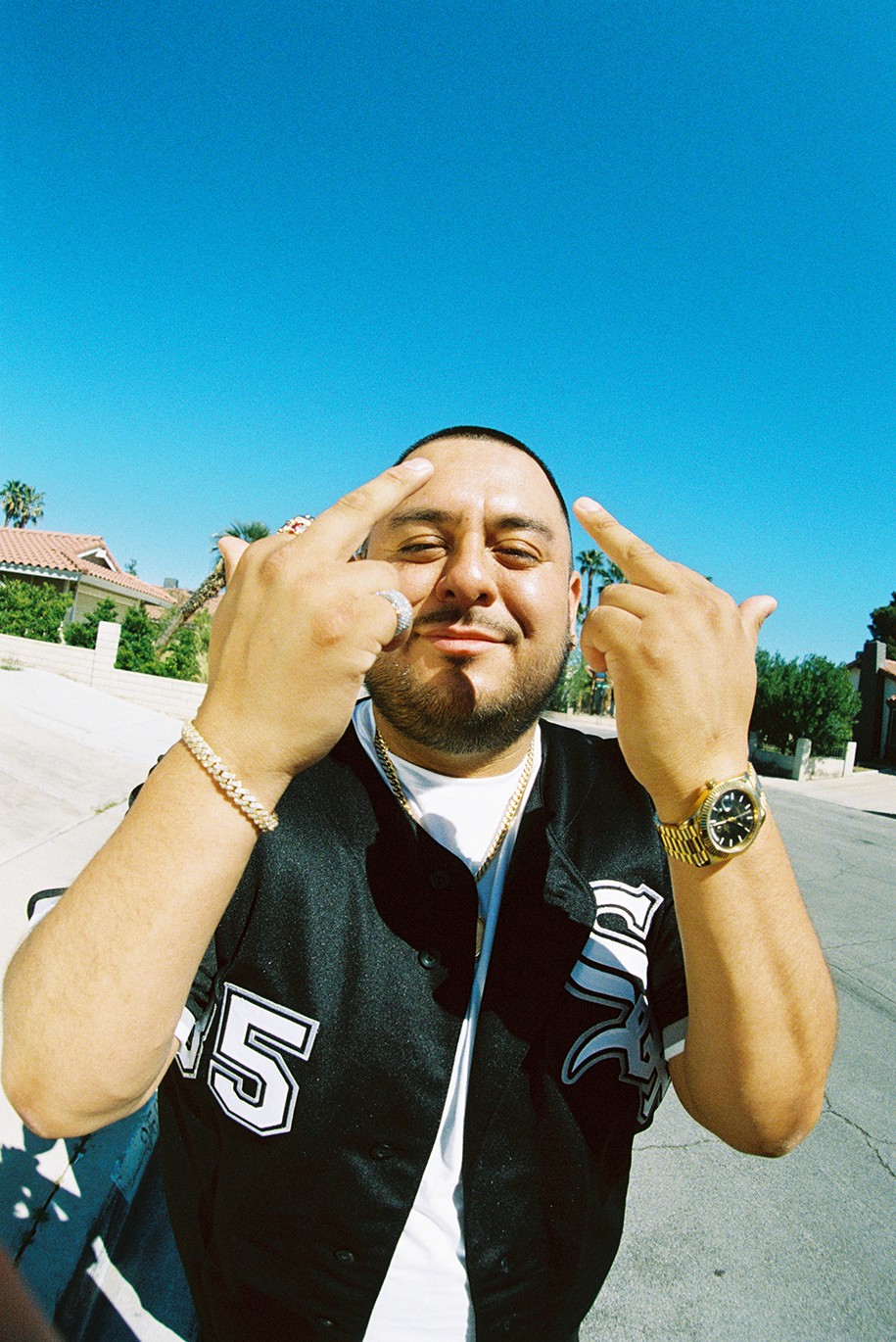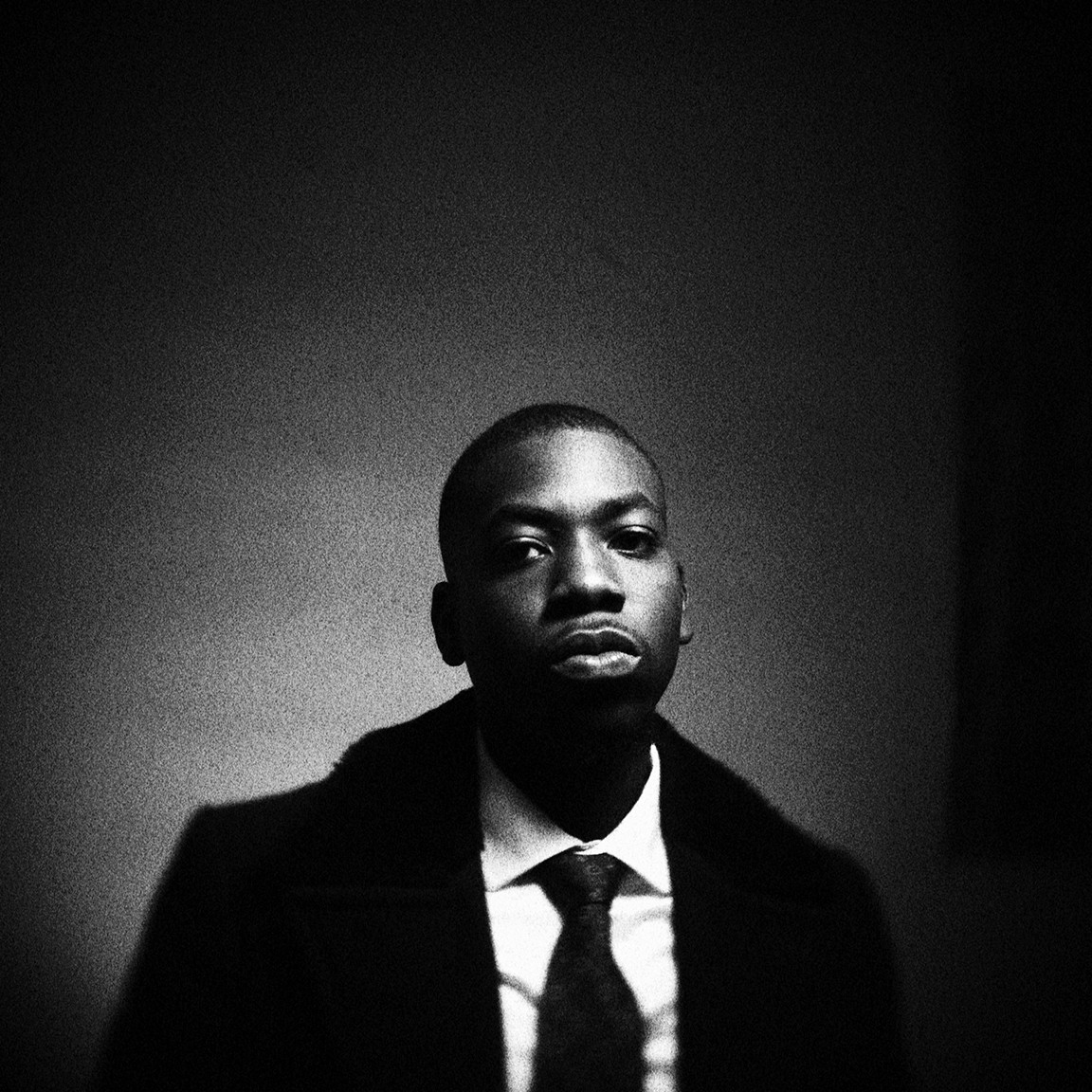Exclusive Interview
Aug 25, 2024
Produced by: Rudy Manager
Edited by: Rudy Manager
TSB – From Garden Shed Studio to Hits with J Hus and Dave
In the world of music production, TSB has emerged as a standout talent, renowned for his innovative sound and impactful tracks. From his career beginnings in a garden shed studio with his brother Maestro (‘TheBaker’), TSB has evolved into a prominent figure in the industry. His work with notable artists like J Hus and Stormzy has solidified his reputation, especially with standout tracks such as “Spirit,” which resonates with its motivational message, and “Disaster,” a hit collaboration with Dave and J Hus. In this interview, TSB opens up about his journey from a music enthusiast to a sought-after producer, sharing insights into his creative process and the stories behind these defining tracks.
“Always remember why you started and focus on the music”
- TSB
How did you get into the music in the first place?
I would say I got into music through my older brother, Maestro (‘TheBaker’). He's a producer, and I used to watch him a lot. He was really good at a young age, and I enjoyed what I was hearing. I remember we begged our mum to buy us a microphone and an interface so we could start learning how to record other people. We set up a small studio in our garden shed. That was the beginning of my journey. I always had an interest in music in some capacity, but I never thought it would be something I'd pursue.
When did you start learning to play musical instruments?
I remember being really young, maybe around seven or eight, when my parents would buy me instruments. I wasn't very good, though. My first instrument was the flute, but I couldn't play it well. Then came the guitar, which I broke, and the recorder, which I couldn't play either. By the time I was about 14 or 15, I started teaching myself to play the piano, and that's where it all began. So, yeah, I'd say my interest in music started in my early years.
What were your musical influences back then? Who were you listening to, and what kind of musicians did you look up to?
I used to listen to a lot of live music, particularly blues and jazz. My dad introduced me to a wide range of music. I'd often listen to Quincy Jones, The Brothers Johnson, Teddy Pendergrass, and The Isley Brothers. From my mum, it was all gospel music. I grew up in a house where music was always playing.
Who were some of the first artists you started working?
Some of the first artists I worked with were Sneakbo, Yungen, and Stormzy. I also worked with Scorcher and Wretch 32. My early work was mainly in the grime scene. I think my first record was with an MC called Lioness, who I considered the best female MC in the game at the time. That was nice.
What was your process of getting the beats and music to them?
I was just reaching out on social media. This was around the time when Twitter first started. I'd simply send a message saying, "Yo, I've got a beat that I think you would be interested in and sound good on," rather than hounding them. I feel like the way I worded it made the artists more open to actually listening to what I had to send. That's really how I started building a lot of relationships via social media.

Did you know in the studio that "Spirit" was going to be such a huge hit and achieve so many streams?
That's a good question. I don’t think we ever knew exactly what it would do in terms of numbers. You can get a sense if previous songs, "Did You See," had done well, which it did, but there were times when we weren’t sure if "Spirit" would even make it onto the album. I remember one day specifically calling my mum and asking her to pray with me about the song—hoping it would come out and make an impact. As much as I’d like to say I had a sense it would be a hit, I believe it was God’s plan. J Hus even says in the lyrics, “I can't take credit because God wrote it.”
Is there another production of yours that you value highly but hasn't reached the commercial success you thought it would?
Absolutely. There are definitely a few. I’m grateful for my success in the rap space, but I’m also a musician with love for R&B, pop, dance music, and more. I love so many different types of music. I'm in these other spaces as well.
For example, there's a song I worked on with Stefflon Don for her last album called “Problems In Paradise,” featuring James Gillespie. Another one I really value is “Wish the Love Never Died” by a Dutch artist named SABRI. I love that song because it shows a completely different side of my work. Additionally, there's a record I co-produced called “Pick Your Poison” with Bree Runway, featuring Stormzy.
Many people know me primarily for my work in rap, but if they were aware of my projects in other genres, they’d see how versatile and diverse my sound palette really is.
Do you have visions or ambitions to work in completely different musical spaces?
Absolutely. I've made a conscious decision to work with rappers less frequently. While the music can be great, it can become one-dimensional if I’m only seen as a “rap producer,” and I’m much more than that. I want to explore different genres—whether it's dance, pop, R&B, rock, indie, or anything else. As long as the music sounds good, I’m happy. So, I’ve intentionally focused on branching out into these various spaces, and I hope that, God willing, the public will get to hear more of that.
Can you share how Dave’s song “Disaster” featuring J Hus came about?
That was an interesting season. I was working with J Hus, MoStack, and Dave quite a lot. Sometimes, I’d have the privilege of having them all in the studio together, and we made a lot of music. It’s surprising that “Disaster” is the only collaboration I produced for them that made it out. Initially, I had two tracks with J Hus on Dave’s album—one called “Bang And Slang” and the other called “Yappin,” which featured both J Hus and MoStack. However, J Hus ended up going back to jail, and he pulled the plug on both tracks.
So, I went from having two songs on Dave’s debut album to having none, which was crazy. I remember one day in Fraser T’s studio, Dave’s manager Benny asked; “that “Disaster” song that you guys did, do you reckon we'd be able to use it”? And I was just like; “Well, I'd hope so…” Fortunately, it became my first top 10 single. It was on Dave’s album Psychodrama, which also turned out to be my first number one album. The album went on to win Brit Awards and receive many nominations and accolades. When it comes to the studio, those guys are a really elite level; they are always sparring with each other. And I think you can hear that in the music and in the song.
I'll never forget, the day we recorded “Disaster” was right after Notting Hill Carnival. Dave pulled up to the studio, and J Hus was already in my room. The rest is history.
I saw you did a breakdown video for your song “Neighborhood” by DC, where you explained that you were using 808s for the melody, which is quite unusual. What influenced you to try this technique?
I went through a period of experimentation and was playing around with Kontakt 808s. Since I play keys, I discovered that hitting an 808 in a higher register could actually sound quite cool. You can play chords on an 808 and make it sound like a pluck, depending on the type of 808. It’s not just limited to lower frequencies; it can be used creatively in other ways. For instance, the main synth lead in “Spirit” is actually an 808 with a lot of glide on it.
That made me realize I had uncovered something unique to my production style. Now, if I need a potent sound in a higher register that will cut through, I’ll pull up that specific 808 and play it in the higher register and it will do the job.
What’s your advice to upcoming producers who are trying to build their name and start working with artists?
My first piece of advice is to put yourself first—your mind, body, and soul. Enjoy the creative process because it’s easy to get so caught up in achieving your goals that you forget to enjoy the journey. There’s no end goal in this career; it's a continuous path. You might find temporary satisfaction in “success,” but it often doesn’t last long.
I remember when I first got a number one album, I thought it was the greatest thing ever. But as it happens again, it doesn’t give you the same feeling. So don’t chase a first high. Remember why you started and always focus on the music. Music is key, but don’t lose your soul in it. You are more important than your music.
When someone critiques your work, it can be hard not to take it personally. But the way I look at it is that I’m TSB the producer, and Toby the human. I am not my music. It might be a part of me, but it’s not me. If someone doesn’t like my music, it doesn’t mean they don’t like me. I feel like sometimes we judge ourselves based on how people critique what we do. If you do that, you might never get to where you need to get because you might hear things that you don’t want to hear.
My advice is to keep going and remain a student of music. Never stop learning. The day you stop learning is the day you stop growing. Never get comfortable; there’s always someone out there in an undeveloped part of the world who might be as talented or more than you. Stay humble and continue to grow and learn.
Follow TSB on Instagram: @_tsboy
More Blog Posts
See our latest blogs














